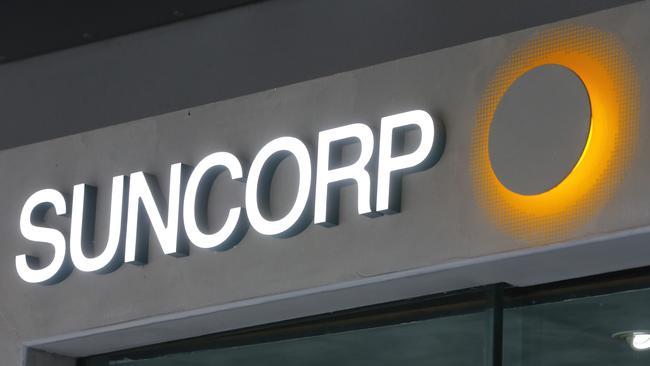Indeed the chance to get one of the last substantial domestic banking properties on the street hangs in the balance with the competition watchdog and an outcome could be known early next month.
In recent days there was an approach from the Australian Competition and Consumer Commission to extend the timing of its decision on the buyout with the deadline that had been due this coming Friday.

Over the weekend ANZ had approved the request that would see the ACCC’s finding on the merger pushed back a week. While the extension is yet to be confirmed, it would potentially give the regulator more time to continue to work through evidence presented in a mountain of submissions.
For everyone involved there is growing frustration about the time taken even to get to this point in the proposed buyout, with all planning in a holding pattern until a decision is known. ANZ is partly to blame here, taking five months to deliver its submission to the ACCC as it sought to build a watertight case.
Even with a decision looming this week or beyond, for the ACCC the final outcome is not so clear cut. An approach by Bendigo Bank to Suncorp for a tie-up before the ANZ option was announced has given the regulator plenty to mull over.
‘Cool on deal’
In a new cache of documents released ahead of the competition watchdog’s final ruling it has emerged that during a frank interview between ACCC commissioners and top ANZ executives, including chief executive Shayne Elliott in June, that the Melbourne-based bank was for years cool on a Suncorp deal.
According to the ACCC’s notes of the meeting, until 18 months ago ANZ wasn’t really interested in acquiring Suncorp given the “risk of distraction and large amount of time and effort” that the bank thought it would need to put into a merger with Suncorp.
At the same time the notes also revealed that ANZ executives believed they had a “materially weak market position” in banking compared to its big rivals without any major points of difference to offer customers.

Here the minutes cite Elliott as telling the meeting that some years ago ANZ saw the risk of being stuck with an “inferior market position” given dynamics from rising competition and changes to capital requirements and technology. All this would mean ANZ would need to invest heavily to improve its competitive position.
The minutes also say ANZ “was not fully across the state of Suncorp’s bank’s business when it was first approached by Suncorp” and assumed there would be a lot more clean-up required of the banking portfolio.
Following an investigation ANZ found there was “simplicity” in the Suncorp portfolio and alignment with what it was doing.
ANZ also noted Suncorp with a 2-3 per cent national market share “is not a close competitor” of ANZ with a 14 per cent share. Nor is Suncorp considered a “maverick” in terms of pricing or banking products.
However, Elliott also told the ACCC representatives the Suncorp acquisition will help the fourth-placed ANZ be a “more effective competitor” in the Australian banking market as it will be able to spread technology spending and other investments over a bigger customer base.
Here ANZ said it has the capacity to acquire Suncorp’s 1.2 million customers and service them through digital channels and cyber protection “better than Suncorp can today”.
“ANZ submits that the market today is about the ability to invest and deliver great customer outcomes in terms of price and engagement, and that requires massive investment capacity,” the meeting minutes said.
Bendigo deal
ANZ and Suncorp too have been busy pulling apart a report on the banking market commissioned by ACCC and prepared by Mary Starks, an economist and former top UK competition regulator. Here the so-called Starks Report put a big question over the deal saying it was likely to substantially reduce competition in the national market for home loans as well local markets for agribusiness banking and small-to-mid-sized business banking. Starks also concluded that a merged Bendigo-Suncorp “will likely pose a stronger competitive constraint on the major banks and undermine co-ordination”.
Both ANZ and Suncorp dismissed the likelihood of a Bendigo merger, saying such a move is not grounded in commercial reality.
ANZ too last week filed its response to that report saying Sparks’ assertions are “not based on the evidence” contained in her own report, including that the proposed acquisition will only result in a modest increase in the markets that she examines.
In its own submission to the Starks Report, Bendigo Bank maintains that a merger with Suncorp is a commercially realistic proposition. It says an ANZ deal would result in a substantial lessening of competition without any net public benefits, as compared to the Bendigo/Suncorp Bank deal or the status quo.
Bendigo also says the ACCC should place “minimal weight, if any” on ANZ’s claimed benefits of a deal.
Suncorp’s view
Amid all the wrangling it’s important for Suncorp’s position not to get lost in the ACCC’s upcoming ruling.
After a near-death experience in the global financial crisis nearly 15 years ago, Suncorp has been running its banking arm on a deeply conservative footing. It has pared back risky development lending and bigger business loans.
Suncorp under chief executive Steve Johnston is a willing, but not forced, seller of the bank. Shortly after taking charge as CEO in 2019 he came to the conclusion that for Suncorp to remain competitive in banking requires a serious investment particularly around technology, while ever increasing regulatory demands were adding to costs that were unfairly hitting smaller banks.

At the same time Johnston believes an exit makes strategic sense. It means Suncorp can play to its strengths in general insurance, where through brands AAMI and GIO or Vero where it is either number one or the second biggest player in each of the markets it plays in.
A multibillion-dollar cash sale to ANZ will see Suncorp return much of the proceeds to its shareholders. It also stands to unlock additional funds Suncorp is required to hold on its balance sheet under banking regulations that will be ploughed back into becoming a stronger insurer.
Johnston has previously told The Australian that every day he has to make a decision on where each investment dollar goes. At its basic it is either into his bank or his insurer and both are capital intensive.
“It can’t be spread uniformly and ultimately we’re going to have to make some tough decisions around the portfolio,” Johnston said.
Johnston is prepared to hold onto the bank and go it alone in the absence of an ANZ deal and a tie-up with Bendigo Bank is among his least preferred options.
Bendigo’s market capitalisation is currently a little over $5bn meaning Suncorp is a big bite. This means any deal at a similar price tag would involve a substantial share component as currency leaving Suncorp or its shareholders with exposure to the risk. At the same time Johnston is not convinced it is the best outcome for customers with Suncorp bank likely to lose its “single-A” rating under a merger with the smaller Bendigo, pushing up funding costs.
A cashed-up ANZ meanwhile remains determined to see through its side of the acquisition. A negative ruling is likely to see it appeal to the Australian Competition Tribunal or go straight to the Federal Court. This path could create a headache for treasurer Jim Chalmers, who has final sign-off on banking deals in Australia. The politics of a Treasurer approving a big four bank deal against the call of his own agency is difficult, particularly in a rising interest rate market. But after years of going its own way, ANZ is now all in with Suncorp.







ANZ’s $4.9bn bid for Suncorp’s banking arm quietly ticked over the one-year anniversary last week. But this wasn’t a milestone celebrated inside the big four bank.